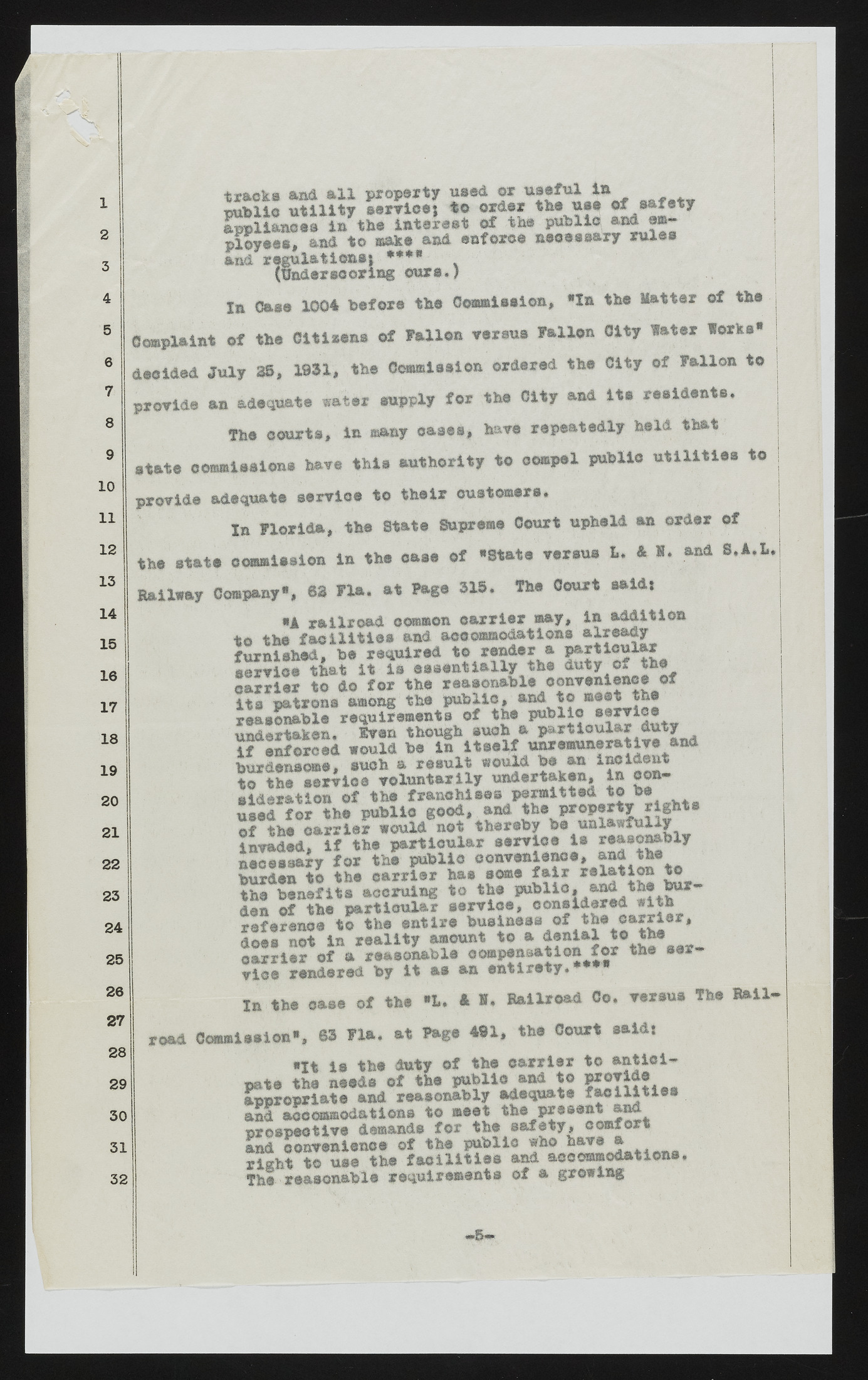Copyright & Fair-use Agreement
UNLV Special Collections provides copies of materials to facilitate private study, scholarship, or research. Material not in the public domain may be used according to fair use of copyrighted materials as defined by copyright law. Please cite us.
Please note that UNLV may not own the copyright to these materials and cannot provide permission to publish or distribute materials when UNLV is not the copyright holder. The user is solely responsible for determining the copyright status of materials and obtaining permission to use material from the copyright holder and for determining whether any permissions relating to any other rights are necessary for the intended use, and for obtaining all required permissions beyond that allowed by fair use.
Read more about our reproduction and use policy.
I agree.Information
Digital ID
Permalink
Details
More Info
Rights
Digital Provenance
Publisher
Transcription
1 2 3 4 5 6 7 8 9 10 11 12 13 14 15 16 17 18 19 tracks and all property used or useful la public utility service; to order the use f L sa*®ty appliances la the interest of tbs public and employees* and t© make and oafores necessary rules and regulations; **** (Underscorlag cure.) la Case 1004 before the Commission, "la the Matter of the Complaint of the Citizens of Fallon versus Fallon City Water forks* decided July 35, 1931, the Commission ordered the City of Fallon to j provide an adequate eater supply for the City and its residents, The courts, in many cases, have repeatedly held that state commissions have this authority to compel public utilities to provide adequate service to their customers. In Florida, the State Supreme Court upheld as order of th, rtat, oeoaiMlon to th. M » af * M « u I*. * “ 4 S-*-1* Railway Company", 68 Fla. at Pago 315. The Oonit aaldi til r&Hroad ooramon carrier may, in addition to the facilities and accommodations already furnished, be required to render a particular service that it is essentially th© duty of the carrier to do for the reasonable convenience of its patrons among the public, and to meet the reasonable requirements of the public service undertaken. Sven though such a particular duty if enforced would be in itself unremuneratlve and burdensome, such a result would he an incident to the service voluntarily undertaken, in consideration of the franchises permitted to be used for the public good, and the property rights of the carrier would not thereby be unlawfully invaded, if the particular service is reasonably necessary for tha public convenience, and the burden to the carrier has some fair relation to the benefits accruing to the public, and the burden of the particular service, considered with reference to the entire business of the carrier, does not In reality amount to a *?aial ^ the carrier of a reasonable compensation for the ser vice rendered by it as an entirety* In the case of the "L. I »* Railroad 0©. versus The Ball-road Commission", 63 Fla* at Fags 491, the Court said: "It is the duty of the carrier to anticipate the needs of the public and to appropriate and reasonably adequate facilities and accommodations to meet the present and prospective demands for the safety, comfort and convenience of the public who have a right to use the facilities and accommodations. Til®. • of & g^ewi&g

